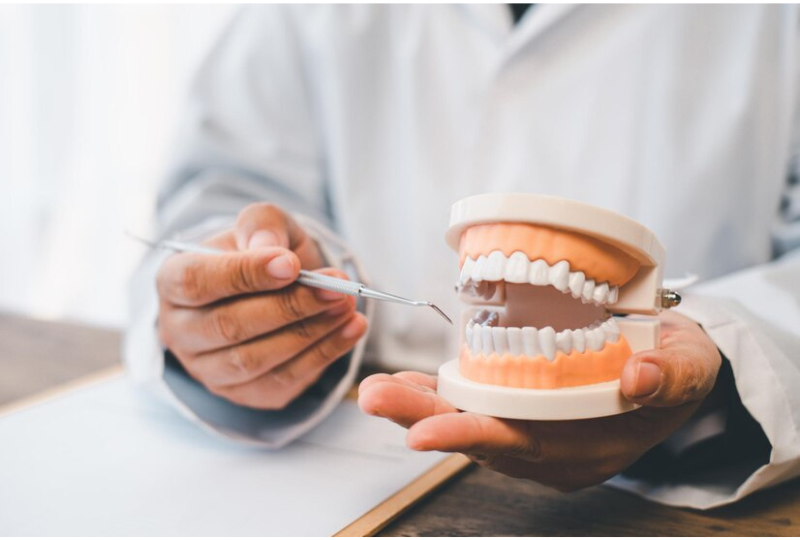Table of Contents:
- Introduction to Digital Dentures
- How Digital Dentures Are Made
- Benefits of Digital Dentures
- Common Concerns and Questions
- Real-Life Experiences with Digital Dentures
- The Future of Dental Technology
- Questions and Considerations for Prospective Users
- Conclusion: Embracing the Digital Age
Introduction to Digital Dentures
The evolution of dental technology has led to remarkable advancements that allow us to enjoy a level of oral care that was unimaginable just a few decades ago. Digital Dentures is at the forefront of these innovations, a solution that promises better fit and comfort and revolutionizes how denture wearers experience everyday life. Unlike their traditional counterparts, digital dentures fuse modern technology with convenience, offering a streamlined process that caters to the needs and expectations of today’s consumers. With digital impressions leading to precise and enhanced fittings, they are rapidly becoming the go-to choice for those looking for an updated experience in denture use.
How Digital Dentures Are Made
Creating digital dentures is a complex process that begins with a precise 3D digital scan of a patient’s oral structure. This crucial initial step establishes the groundwork for manufacturing. The digital model generated is then utilized in computer-aided design (CAD) software to simulate the appearance of the finished dentures. This model directs advanced manufacturing technologies, such as 3D printing and milling, to create the final product. The accuracy provided by digital technology ensures that the dentures are custom-fitted to each patient’s mouth, minimizing the need for adjustments and enhancing the comfort and effectiveness of the prosthetics. For further insights, Advanced Smiles Marion offers special reports detailing how digital dentures can transform smiles.
Benefits of Digital Dentures
Among the standout advantages of digital dentures is their unparalleled accuracy of fit, attributed to the precision of digital scanning and computer-aided design. Unlike traditional denture fabrication, which can involve multiple visits and a degree of trial and error, the digital approach significantly reduces turnaround time. Patients can transition from the initial consultation to the final fitting far more rapidly, often experiencing fewer adjustments and less discomfort. Furthermore, digital records mean that replacements can be easily made, offering a seamless backup option. As a result, digital dentures provide a quality product and enhance the overall patient experience by reducing hassle and increasing satisfaction.
Common Concerns and Questions
For many considering the switch from traditional to digital dentures, concerns often revolve around cost, longevity, and the adaptability period. Understandably, potential users worry if the investment in digital technology will pay off in terms of durability and usability. Discussions in the dental community indicate that digital dentures are designed to be robust and long-lasting, often made from materials comparable or superior in durability to those used in traditional dentures. While cost can be a component in decision-making, the benefits, such as less frequent need for replacements and corrections, often provide value that extends well beyond the initial expense. In-depth examinations show how digital technologies can impact dentistry, offering insights into their long-term effectiveness.
Real-Life Experiences with Digital Dentures
Hearing directly from those who have shifted to digital dentures provides practical insights into these products’ real-world benefits. Many individuals report significant improvements in everyday comfort and functionality. For example, the smooth process from digital scan to wearing the final prosthetic is often cited as transformative, eliminating much of the inconvenience and distress associated with traditional dentures. Personal testimonies underscore a newfound confidence in living with dentures, with users frequently praising their digital counterparts’ natural appearance and feel. These experiences provide compelling evidence that digital dentures can enhance the quality of life for wearers, addressing both functional and aesthetic needs more effectively.
The Future of Dental Technology
Digital dentures represent the beginning of how technology is set to continue transforming the dental industry. By incorporating artificial intelligence and machine learning, future advancements promise to refine and enhance the levels of customization and precision already achieved. These technologies are poised to provide even more accurate diagnoses, predictive maintenance of dental appliances, and innovative solutions to existing dental challenges. As research and advancements continue, patients may anticipate even more effective and individualized dental care solutions tailored to their individual needs, generally increasing the bar for dental care.
Questions and Considerations for Prospective Users
When contemplating digital dentures, it is essential to consult with dental professionals to understand the implications and benefits specific to individual cases fully. Essential questions include inquiring about the differences in materials, the expected lifespan of digital dentures, and personal suitability. Understanding individual needs and lifestyle considerations can play a pivotal role in determining whether digital dentures are the right choice. By engaging in informed and open dialogue with their dental care providers, prospective users can make decisions best suited to their unique circumstances and future expectations.
Conclusion: Embracing the Digital Age
The transition into the digital era of dentistry heralds a new age of possibilities for those needing dental prosthetics. Digital dentures, as a technological advancement, offer a remarkable blend of precision, beauty, and practicality. Users can enjoy comfort and convenience by opting for digital solutions, significantly enhancing their oral health and everyday life. As dental technology advances, embracing such innovations ensures that wearers remain at the forefront of improved dental care and overall wellness, perfectly illustrating the benefits of marrying technology with tradition.

